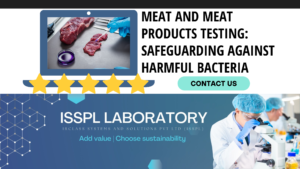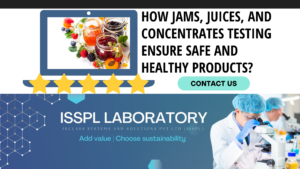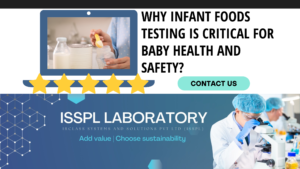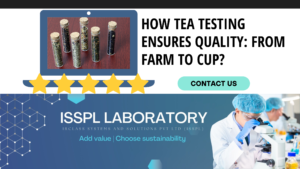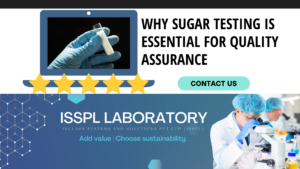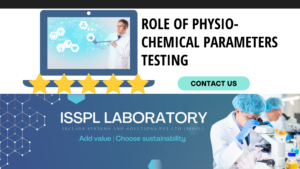An Overview by Team ISSPL - Analytical Testing Laboratory in India
ToggleProcessed food and its components require a thorough inspection. The processed food is distinct from the regular food items available in the fresh market. It is a transformed food item that is distinct from its natural state.
The transformative steps include – washing, canning, freezing, or including ingredients in the food item. Baking, cooking, or preparing food are part of food processing. The popularity of the processed food is increasing at a fast speed. Do you know why? Over time, the urban, young, and working population has increased. The processed food items are in high demand in India and abroad.
The demand will increase with time. The emerging food habits and lifestyles of the urban population, organized food retail, etc., are the prime factors for the impeccable growth in the processed food industry.
The growing popularity – Decode it
Processed food is the new-age choice for more reasons than one. It can help people consume nutrient-dense foods and ensure better health. Milk and juices in the processed format deliver the best boost of calcium, vitamin A and D.
Other food categories include cereal products, fats, oils, rice, etc. These are part of the fortification program conducted by FSSAI (Food Safety and Standards Authority of India). Canned fruit is an excellent option for those unable to access fresh fruit. Processed food contains preservatives but it is not harmful to the body. It enhances the functionality and utility of the food component in the can.
For instance, pasteurizing milk and cheese improves the shelf life and quality of vacuum packaging. The extensive processing techniques can prevent meat and other protein-rich products from spoiling.
One can also spot minimally processed food. It includes – pre-cut vegetables, carrots, beans, green peas, etc. The availability of ready vegetables enhances the quality and convenience of foods for people with hectic schedules. They can ensure healthy eating.
Processed foods guarantee multiple benefits to consumers with maximized safety and hygiene. There are various healthy options for people concerned about high sugar, saturated fat, trans fats, and sodium content in processed food. The accurate information on the package helps determine the nutrition labels for low sugar, low fat, and low sodium in processed food.
Lab testing and analytical reports deliver the best solution for hassle-free selection.
Safety concern and regulation – An essential aspect
Processed food covers different types of food products. It could be bread, cheese, or ready-made meals. The ever-increasing consumer demand for processed food products has enhanced the offerings. However, there are chances of exploitation of processed food with the diversified product collection.
Hence, safety regulation and quality monitoring are essential aspects. The well-defined quality control methods ensure the best and most accurate data on the food ingredients. It also helps maintain food quality and safety throughout the processing stages.
Industry-defined requisites for processed food safety
FSSAI regulates the processed food industry. It divides the processed food items into various categories and offers accurate data on specified testing parameters. The norms define the various essentials concerned with nutritional labels, contaminants testing, and microbiological safety.
FSSAI has defined the essentials and regulations for food labeling and packaging. The processed and packaged processed food must comply with the requisites.
The USFDA also monitors and specifies the nutritional labeling requirements of processed food. Critical data related to allergens must be on the package. It is a regulation declared by FSSAI. For instance, if the food is made of ingredients like – cereals with gluten (wheat, rye, barley, oats), crustacean and their products, milk, dairy products, eggs, fish, groundnut tree nuts, soybeans, etc., the ingredient concentration must be mentioned accurately.
Testing protocols for processed food stability
Shelf-life determination for processed food helps make a prudent choice for the consumers. They can review the products and identify the best for the health requirements. The analytical testing helps identify the time period for optimal storage. It determines the data related to product expiry for the packaged and processed food product. The best laboratories conduct short-term and long-term stability studies based on ICH and WHO guidelines.
Range of testing – Know the types
Nutritional and Contamination testing –
- Nutritional label testing
- Fortified food testing
- Vitamins
- Minerals
- Pesticides residues
- Antibiotic residues
- Heavy metals
Mycotoxins testing –
- Deoxynivalenol (DON)
- Zearalenone (ZON)
- Fumonisin
- Patulin
- Melamine
- Food Additives
- Aflatoxin B1, B2, G, G2,
- Aflatoxin M1
- Ochratoxin A
- Ethylene oxide (ETO)
- Dioxins
- MOSH & MOAH
- PAH
Allergens testing
- Alkaloids
- Ergot alkaloids
- Pyrrolizidine alkaloids (PA) and tropane alkaloids (TA)
Pathogenic microbes – Micro-organisms can generate multiple health threats. It is vital to review the presence and impact of the following pathogenic microbes with the help of lab-testing facilities –
E. coli, Staphylococcus, Shigella, Salmonella, Coliforms, Vibrio cholera, Listeria, Pseudomonas, Campylobacter, Yeasts and molds.
Why do you need the best lab testing solution?
Ensure reliable and accurate quality checks for different types of processed foods. The lab facilities at the top analytical testing centers deliver the best results for microbiological tests, nutritional compositions, and detection of toxic contaminants. The inspection may be physical, chemical, or biological depending on the standard protocols defined by the authorities.
- Ensure the best compliance status with state-of-the-art equipment like – high-resolution GC, GC-MS, GCMSMS, FTIR, ELISA, HPLC, LC-MS/MS, ICP-MS, and Real-time PCR.
- Enjoy the efficient lab testing facilities with a swift turn-around time.
- Access local contact with global resources and network to make it cost-efficient
- Acquire global recognition by participating in industry associations and regulatory bodies defining the essential food safety concerns
- Ensure the best consultation for advisory support on testing schemes, on-site-check for hygiene and allergens, labeling advice, and traceability.
- Obtain reliable results with the best assistance.
Explore the objectives of processed food testing
Testing the processed food is critical for various reasons. Here are the top objectives that will help you decide better –
- Ensure the best commercially made food product with a long shelf life
- Guaranteed consistency, food safety, and a nutritional composition
- Enhanced food technologies to boost the quality to the next level
Make the best choice.
Connect to a lab testing solution provider and obtain accurate results to resolve the requirements. IRCLASS Systems and Solutions Pvt Ltd (ISSPL) laboratory can bring the best outcome with optimal quality assurance.
